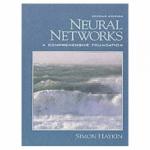|
This section contains 1,389 words (approx. 5 pages at 300 words per page) |

|
Since its inception in the 1940s, when it was hailed as "The Electronic Brain," the digital computer has been expected to replicate cognitive functions. While developments in hardware technology and software techniques have enabled limited successes in this direction, many cognitive capabilities remain uniquely human. The field of artificial intelligence (AI) seeks to infer general principles of "intelligence" by analyzing human cognitive processes, and then to encode them in software. The standard approach to AI is grounded in the assumption that human cognition is based on the ability to manipulate symbols using logical operators. An alternative approach, generally known as neural networks, is motivated by the observation that the biological brain is the only device capable of intelligent behavior.
Thus, the neural network framework is rooted in principles abstracted from our knowledge of neurobiological function. Some of these follow:
- Computation is performed by a...
|
This section contains 1,389 words (approx. 5 pages at 300 words per page) |

|



